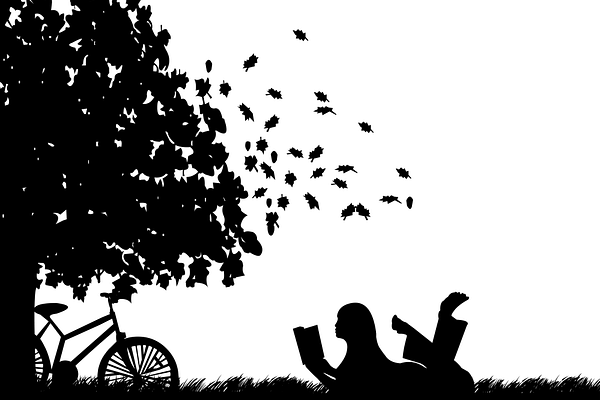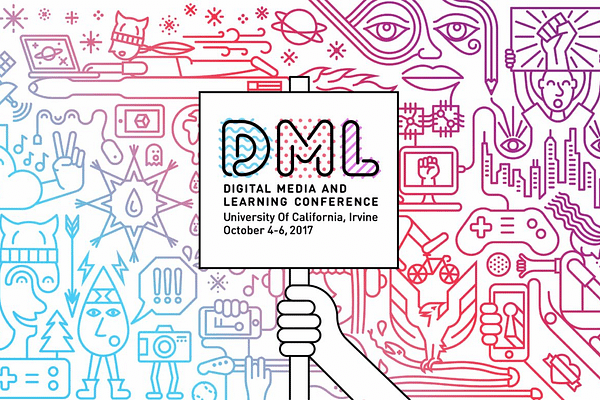
As I begin to compose this blog post, my browser has more tabs open than I think I've ever had open at one time before. I've bookmarked 30+ articles about digital literacy the past couple of years, with each post linking to a plethora of additional resources on the subject. My goal in this post is to increase our literacy about the topic of digital literacy.
My Quest
I want to write a post about digital literacy, as a means of recapping my conversation with Mike Caulfield that was published last week.
The Trouble
It is so challenging to even just begin by defining digital literacy, let alone to begin to discuss some of the criticisms of the more popular publications on the topic.
My Compromise
Instead of trying to give readers a thorough exploration of the topic (Mike Caulfield admitted on Twitter that his Digital Literacies: Which One? post was initially intended to be just a few hundred words, but before he knew it, quickly grew into thousands), I'm going to introduce a few places to get started with the subject.
Digital Literacy: A Definition
JISC defines digital literacy as:
Digital literacies are those capabilities which fit an individual for living, learning and working in a digital society.”
They go on to explain:
Digital literacy looks beyond functional IT skills to describe a richer set of digital behaviours, practices and identities. What it means to be digitally literate changes over time and across contexts, so digital literacies are essentially a set of academic and professional situated practices supported by diverse and changing technologies. This definition quoted above can be used as a starting point to explore what key digital literacies are in a particular context eg university, college, service, department, subject area or professional environment.”
Lest I leave you assuming that this is the agreed-upon definition for digital literacy, there are as many definitions as there seem to be publications on the subject. Belshaw cautions us about the ambiguity that emerges, when we refer to digital literacy.
Belshaw's TEDx talk on the essential elements of digital literacy provides a wonderful overview:
Essential Frameworks
There are a few frameworks that are critical to understanding the ways in which we might think about digital literacy. Some of these frameworks focus on domains, while others are more tool/skill-oriented.
- Developing Digital Literacies from JISC
- Digital Literacy: An NMC Horizon Project Strategic Brief (though also reading this critique of the brief is helpful)
- ALL ABOARD: Digital Skills in Higher Education
- The Essential Elements of Digital Literacies
- Framework for Information Literacy for Higher Education from ACRL
While not specific to solely digital literacy, I do think Mozilla's web literacy map is worth exploring, as well.
Domain-Specific Sites
As Mike Caulfield asserted, a big part of increasing our digital literacy is improving our knowledge within the specific domain being evaluated. Here are just a few resources to help with that endeavor:
Next Steps
There are two specific ways I plan on taking action on what I have been learning about digital literacy. I plan on sharing the ALL ABOARD digital skills framework with the faculty development committee I chair, as a means of brainstorming on possible breakouts for our annual Fall faculty gathering. I also hope to introduce students to some relevant domain-specific sites that could support them in increasing their own digital literacy. Like Mike Caulfield, I also hope that these types of sites continue to grow.
What steps are you taking in developing your own or someone else's digital literacy?



Thanks Bonni – lots of useful links in there! 🙂
I appreciate knowing that, Doug.
One more definition, and link. My advisor, Lalitha Vasudevan, situates her digital literacy definition within the “social practice” tradition in literacy research more generally. I’ve found this to be a rewarding and helpful lens in my early days of doctoral studies on digital literacies in the context of professional education for ministers. The question “how are digital literacies truly literacies?” has challenged and expanded my thinking. Looking forward to checking out the episode!
http://www.digitalcultureandeducation.com/uncategorized/vasudevan_2010_html/
Thank you for including this additional article, Kyle. Let me know how you find the episode, once you listen. With appreciation,
-B